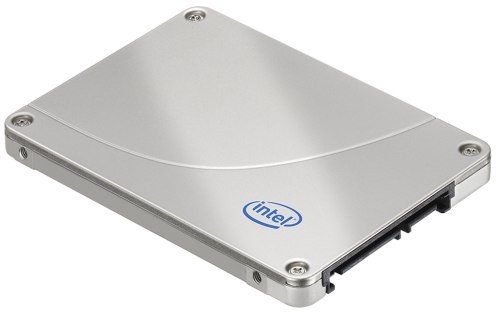More details about Intel's upcoming 710 and 720 SSDs are starting to emerge, courtesy of leaked documents obtained by German site ComputerBase.de. If you recall, both products first appeared in a roadmap published late April, suggesting a launch before the end of July and into the third quarter of the year. The Intel 700 Series is meant to replace the X25-E lineup, Intel's enterprise series, which hasn't been updated since late 2008.
The 710 drives, also known as Lyndonville, will be available in 100GB, 200GB and 400GB capacities with 64MB of DRAM cache and are based on 25nm MLC-HET flash chips. The latter are said to provide more write cycles per cell compared to regular MLC flash and thus they should increase the longevity of drives using it.

Interestingly, the 710 series uses a SATA 3Gb/s interface, meaning that they'll be slower than the 510 series. According to the latest report will offer read speeds of up to 270MB/s and write speeds of up to 210MB/s, with 36,000 and 2,400 IOPS for 4K random read and write operations. It'll feature AES-128 encryption and come in a 2.5-inch form factor.
The 720 series on the other hand, codenamed Ramsdale, uses a PCI-E interface and is based on 34nm SLC NAND flash chips with a much larger 512MB DRAM cache. It will come in 200GB and 400GB capacities and will apparently offer insane sequential read and write speeds of up to 2,200MB/s and 1,800MB/s, respectively. The IOPS numbers are similarly off the charts, with random 4 KB reads at 180,000 IOPS and writes up to 56,000 IOPS.
In terms of security the 720 Series will take a step further that the 710 by supporting 256-bit AES encryption. Unfortunately, there are no details regarding the pricing of these models but judging by the specs and the intended audience you can expect these drives to cost quite a hefty sum.